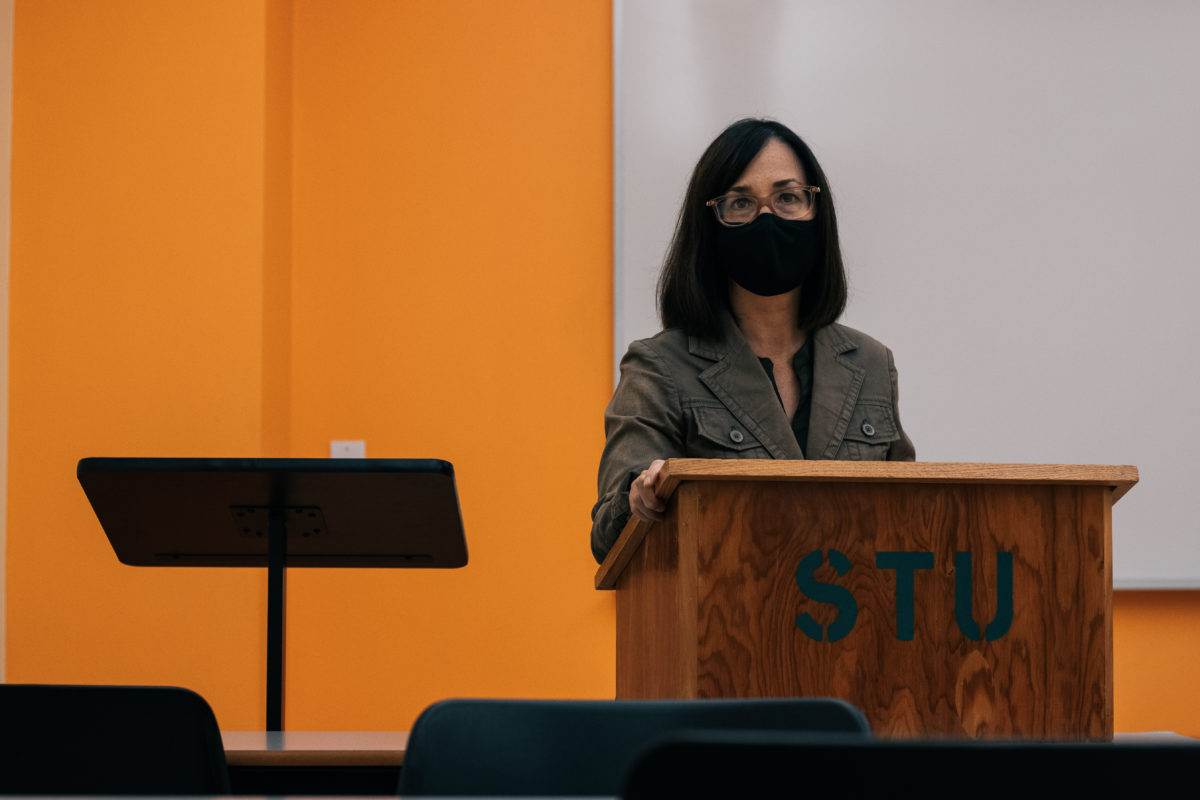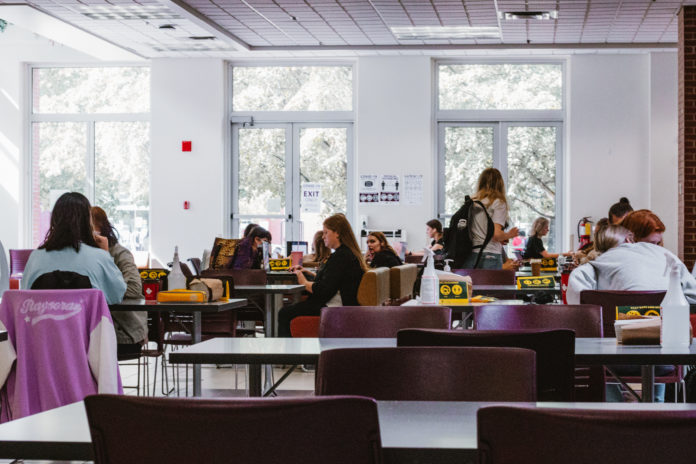St. Thomas University president Dawn Russell announced on June 14 that 65 per cent of courses for the fall semester would be in-person. Since then, Jeffrey Carleton, STU’s associate vice-president of communications, began weekly discussions with public health and the provincial department of post-secondary education, training and labour, to make the return to campus as safe as possible.
“The faculty were able to decide for their own individual courses which ones would be in person and which ones would be remote,” said Carleton.
But Carleton faced uncertainty from faculty members. He said a few professors were concerned about the lack of a vaccine mandate by the university.
In response, Carleton and his team tested the validity of a vaccine mandate by surveying students in July to inquire about their vaccination status. Results showed 87 per cent of students had either received or were expected to receive their two doses before they came to campus in September.
“On August 19, we made the announcement that vaccinations would be mandatory for faculty, staff and students,” he said.

Safety measures and vaccine mandate
Carleton said the key to enforcing masks and distancing is to provide students with accommodations rather than immediate punishment.
Shannonbrooke Murphy, STU professor and endowed chair of the human rights department, said one of the issues she faced during the first week was forgotten masks. As a response, the STU administration supplied each classroom with disposable masks.
“I’m pleased that [STU’s administration] have introduced reasonable accommodation measures,” said Murphy.
Murphy is happy for in-person classes to proceed as long as all other precautionary measures are in place.
Anahí Alvarez, a third-year Ecuadorian student majoring in psychology and gerontology, shares the sentiment. For her, masks and vaccine mandates are important for the return to in-person classes.
Alvarez expressed concern about variants, but she is confident the return to campus won’t cause any outbreaks.
“We just need to live with [COVID-19], and then make sure that we follow everything, like washing hands, sanitizing hands, face masks, social distancing … so we can feel secure around everyone without having any problems,” said Alvarez.


In the case of enforcing vaccine mandates, STU has released an update on how students should declare their vaccination. Students have until Oct. 15 to provide proof of full vaccination. After Oct. 15, all STU students need to be fully vaccinated or complete two COVID-19 rapid tests per week starting Sept. 20.
Students who cannot receive the COVID-19 vaccine due to medical or religious grounds must submit a vaccine exemption form that includes a note from a physician, nurse practitioner or religious leader.
The vaccine validation tool was released on Sept. 16. The tool is part of STUSafe, which is a new mass notification system provided by campus security. Each student can log in with their STU login and password and fill out the form.
“I would have preferred if all of that would have been in place some weeks ago before we all started seeing each other on campus and being here in person,” said Murphy.
Carleton said the tool asks which two vaccines the student received, the dates the students received them and upload proof.
“Most people will take a phone picture of their vaccination card that will go to a queue in what we call the ‘back office,’” said Carleton.
In the “back office,” STU Student Services will go through each submission to check the validity of the vaccination card and then cross-reference the information to the student list.
If students choose to go unvaccinated and don’t have an approved medical or religious exemption, they will not be permitted to come to campus.
“We’re relying on communications, we’re relying on education, we’re relying on persuasion and then, if we have difficulties after that, we will deal with it under the auspices of our non-academic misconduct policy,” said Carleton.

